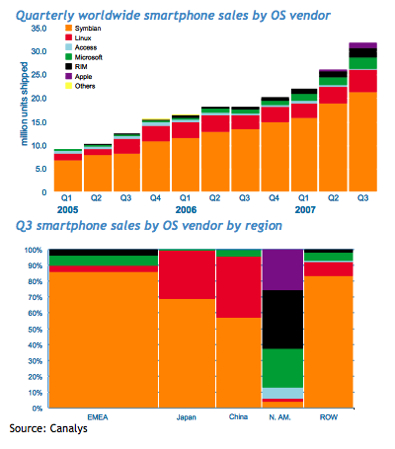1. Tinkering
2. Networked experience
3. Alternative revenue models
4. Massively competitive co-ops FPSs
5. Networking mini games adding value
The list was relatively accurate. Tinkering definitely was and is an aspect in games. For example XBLA games, Scribblenauts and indie scene all brought up different approaches to tinkering and collaborative experience design. Networked experience most definitely was one key trend, though a bit differently that I anticipated. Nexon's Combat Arms reached 1M players in Europe and plenty of FPS titles were released. Also 2009 was successful year for Facebook games, especially Zynga remained in the news thanks to Mafia Wars, Farmville and others.
For the 2010, I went though my Twitter posts and put together a new list of trends and issues we most likely are about to see in 2010. I continue with the same idea as last year. By looking back you can see the future.
1. Indie
One can say that indie was a hot trend already in 2009. There definitely is an increasing amount of attention and interest towards indie games. Besides the games themselves, I think one especially interesting thing is storage and sharing. Those providing easier access, easier distribution
 solutions and easier business opportunities for SMEs and other independent developers will make an impact to the industry. I also believe that indie games will have a greater impact to mainstream games by adding richer variations than before. Thanks to new options for self-publishing and business opportunities for indie developers the attitude towards taking risks and opportunities to put out indie games will become easier. The key here is storage and sharing / distribution.
solutions and easier business opportunities for SMEs and other independent developers will make an impact to the industry. I also believe that indie games will have a greater impact to mainstream games by adding richer variations than before. Thanks to new options for self-publishing and business opportunities for indie developers the attitude towards taking risks and opportunities to put out indie games will become easier. The key here is storage and sharing / distribution.2. 3D gaming
Yes, just when we have get used to HD it is time to step forward. Avatar movie has given new hopes for
 Hollywood studios regarding 3D technology and when the movie industry is pro-3D, so will be games. Hilarious 3D movies and Virtual boy 3D were niches at their times in the 1990s. Now with bigger muscles (=bigger players) things will start to happen. Amongst others Nvidia is promoting 3D gaming. I think 3D will not add valuable experience for all games but it should be easily foreseen how 3D could add value for example to FPSs or adventure games. Still there are few hardware issues to be enhanced but we are getting there.
Hollywood studios regarding 3D technology and when the movie industry is pro-3D, so will be games. Hilarious 3D movies and Virtual boy 3D were niches at their times in the 1990s. Now with bigger muscles (=bigger players) things will start to happen. Amongst others Nvidia is promoting 3D gaming. I think 3D will not add valuable experience for all games but it should be easily foreseen how 3D could add value for example to FPSs or adventure games. Still there are few hardware issues to be enhanced but we are getting there.3. Persistence in games
Facebook games, casual browser games and virtual world/casual MMO developers seek for the next think to jump into with relative low risk level but clear competitive edge. I believe persistent game play will be one such differentiation factor. Persistence has been a thing under discussion for quite some time already especially in MMOs. When people communicate and entertain themselves with multiple gadgets and gaming devices and their media use is fragmented, persistence can add nice twist to gaming. You don't have to be a hard core gamer or a geek to play games over longer period of time. Persistence will add randomness and variety to the game experiences. The game will continue when you are offline but in a way it does not matter if you are offline for a day or a week.
4. Learning + games
Learning in games or serious games is another things that is far from novelty. Edutainment products appeared already at the end of 1980s as the next semi-big thing. Things holding back edugames has been their vague role in the market (commercial games or education software?), weak or non-existing distribution network and common ways to either do educational material formally or make business out of it. At the moment edugames are not really commercial games but not exactly teaching material either. Obviously there will be both but someone should start inventing and formalizing the picture to make a difference. In 2010 more funding will be directed to learning technologies. I sincerely hope that the development would be more startup than university driven.
5. Touch, Point, Gesture
Nintendo Wii brought point and gesture interface to the common crowd and iPhone successfully introduces touch screen (and gyroscope) for gaming. Project Natal and PS3 Motion Controller add more twist to gesture interfaces. Despite Microsoft's and Sony's efforts I expect to see more innovations in mobile regarding to point, touch and gesture. I also believe that this will be one area where games break out of the "games sector" and introduce playful interaction to other application areas as well. There are several examples already how simple game interactions have been utilized for example in advertising and information sharing. Entertaining and natural interaction is what is needed to navigate through vast amount of data and information.





























